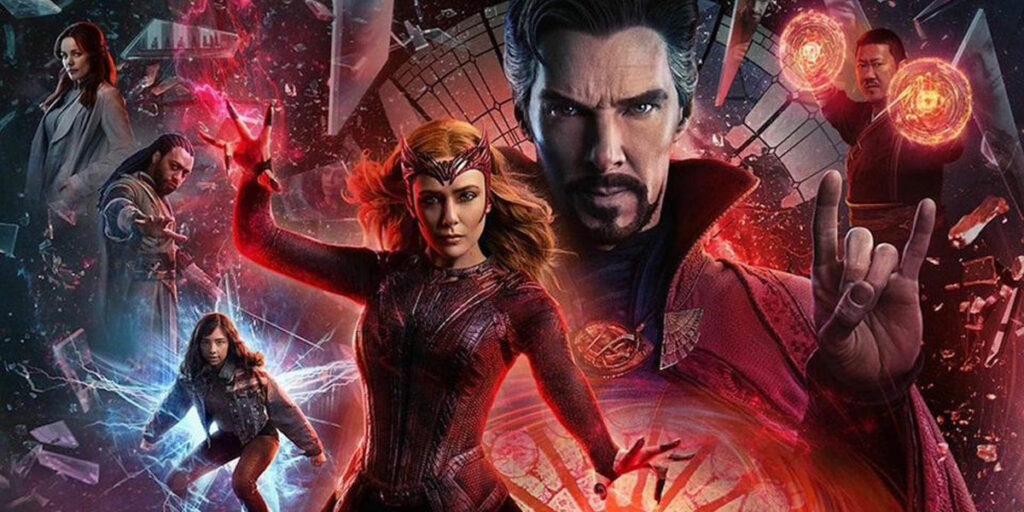Since Spider-Man: No Way Home, the MCU has gotten the multiverse horribly wrong, replacing creativity with cameos. This is how they keep messing it up.
No medium does the multiverse justice better than comic books. They use the concept of infinite parallel universes perfectly, utilising it as a way to tell whatever story they want, no matter how ridiculous, dark or surreal the idea is, whilst keeping it all canon and still being able to get back to the normal status quo. Somehow, in the 50 years that the multiverse has existed in the comic book landscape, the purpose of the concept has shifted. The multiverse is no longer an excuse to tell exciting, fresh stories that put familiar heroes in out-there situations, but rather it’s become a way for filmmakers to shove in cameos and pander to the audience’s nostalgia. The MCU has gotten the multiverse completely wrong, and this is why.
What made the multiverse so interesting?
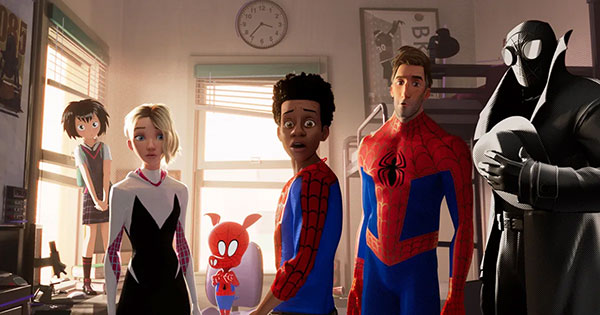
The multiverse is the term we use to refer to the idea that there could be infinite parallel universes, where theoretically, anything is possible. Comic book writers took this concept and decided to really push the whole “anything is possible” idea as far as they could. They opted to tell stories that simply couldn’t exist in the mainstream continuity. For example, there’s a story about Wolverine being an old man, living in the dystopian Wild West which debuted in the Wolverine ongoing series. There’s another one about a version of Batman who has become his world’s version of the Joker who first appeared in the comic Dark Days: The Casting (2017). These are premises that simply couldn’t happen in their respective ongoing series, but using the multiverse, these kinds of stories can be told.
There’s an underlying rule in superhero comics where everything has to be linked in one big canon, and multiverses allow for this to happen. Thanks to interdimensional crossovers, the evil Joker version of Batman can fight the original Batman. Thanks to the multiverse, Spider-Man can be dead in one storyline whilst being alive in another, and then the alive Spider-Man can meet the other universe’s next Spider-Man, who can then come and live in the alive Spider-Man’s universe so that there’s now a universe where there are two alive Spider-Men. It’s confusing, but the multiverse allows for these kinds of stories to be possible. More than anything, the main thing it pushes is original storytelling, as so many fresh, interesting interpretations of these beloved characters can be created.
How did the MCU first handle the multiverse?
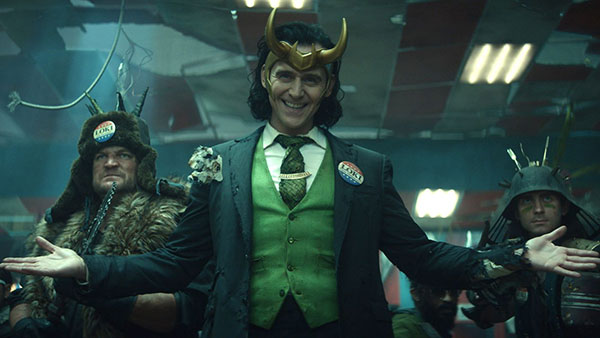
Somehow though, the MCU has gotten it all completely wrong. Whilst they first introduced the idea of a multiverse in Doctor Strange (2016), it was in the first season of Loki (2021) where the concept was first explored, introducing us to a slew of different versions of the titular character. Now, this is exactly the kind of stuff that makes the multiverse so great. Seeing all of the unique, fun takes on the character was a genuinely great moment in the show, and it filled me with a lot of hope that maybe the MCU would get one of my favourite parts of the comic right.
What If…? (2021) continued that, giving us essentially 8 different alternate universes and whilst I definitely would have liked to have seen some slightly braver timelines with more changes, what we got was seemingly a good glimpse into the future. For the most part, we were being shown universes that felt creative, fresh and unique, and to me, that is what defines the multiverse. It’s only ever as interesting as the ideas inside of it, so seeing some universes with some genuinely interesting concepts excited me, and gave me hope that maybe they would actually do the concept justice.
What Changed?
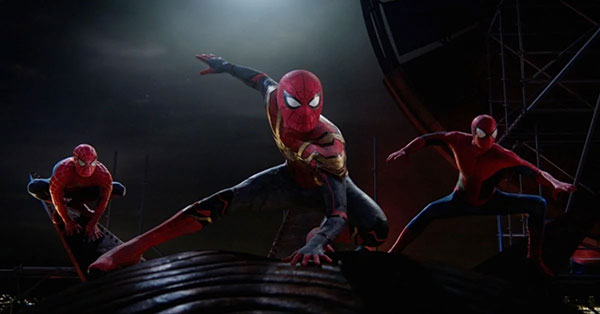
But then, Spider-Man: No Way Home (2021) happened, and everything changed. Now, this isn’t me saying the movie’s bad by any means, but what it did do is show a complete lack of understanding towards what makes the multiverse so interesting in the first place. In the movie, we see the main Marvel universe where Tom Holland’s Spider-Man resides clash with two others, which causes not only multiple villains to crash into our timeline but also two other Spider-Men, portrayed by Andrew Garfield and Tobey Maguire, the actors who played the titular role in the previous movies. It’s very cute to see them back in the roles, but taking off my nostalgia goggles for a second, the scenes featuring the three of them aren’t that interesting. This comes down in large part to the fact that, aside from their age and some other minor details, they are all playing the exact same character.
We only need to look at the film Spider-Man: Into The Spider-Verse (2018) to see the potential that was missed. Spider-Man might just be the superhero with the most interesting roster of multiversal variants to pick from, so why are we just watching three very normal Spider-Men team up? Why not pair Tom Holland’s Peter Parker up with Spider-Gwen? Or Spider-Man Noir? Or Spider-Man 2099? Or Miles Morales? The multiverse is interesting because of the fact it allows for such extreme variations on the same character, so why feature what is essentially the same interpretation three times? Surely, it would be more interesting to have three radically different takes on the character conversing, which would then allow for even more ridiculous and interesting scenarios and villains to be introduced.
Obviously though, we know why they opted to go with Andrew Garfield and Tobey Maguire. Nostalgia is a powerful tool and unfortunately, Disney knows that. They know that by putting these two in the film that everyone who has ever cared about a Spider-Man movie will turn up to watch it, just out of a desire to see their favourite version of the character appear on screen again. Even my girlfriend, who has never seen a Spider-Man movie, wanted to go see the film just because she heard all three actors were going to be in it. With Spider-Man: No Way Home, the multiverse went from being a way to tell creative stories to a way to weaponize nostalgia and drag people into the cinemas.
Look at Doctor Strange in the Multiverse of Madness (2022), a film that’s supposedly about the multiverse. In it, Doctor Strange (Benedict Cumberbatch) travels to essentially one other universe, where the big change is that when a traffic light shines red, you go. That one line felt like a punch in the face. Why aren’t they travelling to a world where everyone is an Arthurian-era knight? Or a world where everyone is a hyper-intelligent slug? I’m being over-dramatic for sure, but it’s a genuine question, why is the potential of the multiverse not being pushed to its limits? The multiverse is infinite, it’s meant to push the idea that anything is possible, so why are they doing the bare minimum with it?
But then, it becomes obvious why they’re doing it. As Patrick Stewart rolls onto the screen in his Professor X costume, everything becomes clear. It’s so that they can continue to shove in stunt castings, designed to pander to people’s nostalgia and go viral on social media. The Illuminati does have some cool ideas for characters in there, but the whole film yet again manages to miss the mark on what makes the multiverse so interesting in the first place. Seeing the rumours about who will supposedly feature in future films like Avengers: Secret Wars (2026), it confirms to me that seemingly Marvel have learnt nothing. I’m sure Robert Downey Jr will appear in the film, or that they’ll, for some reason, get Miles Teller back as Mister Fantastic just to make one random audience member clap.
Is the MCU the only one getting the multiverse wrong?
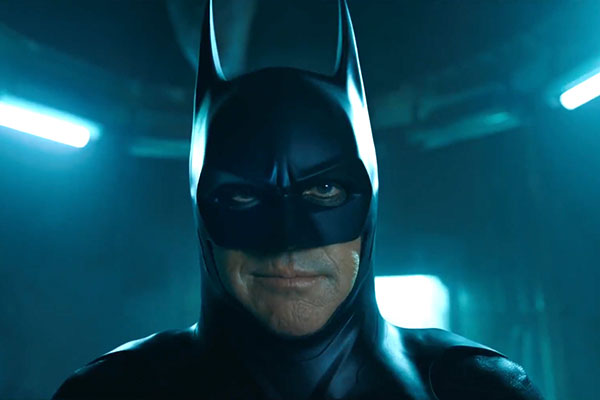
Now maybe I’ll be proven wrong, and Avengers: Secret Wars will finally give me the cinematic multiverse I’ve always wanted, but for now, it just seems to be a vehicle for cameos, rather than a way to tell interesting, creative stories, like it used to be. Now, admittedly the MCU isn’t the only one getting this completely wrong, because I am equally frustrated that The Flash (2023) has decided to ditch its Batman being a grieving Thomas Wayne in favour for a nostalgia-pandering Michael Keaton cameo, but as the original and most popular cinematic universe, but it does feel like the main perpetrator. All I want is for exciting, unique stories to be told, and right now, it feels like that kind of storytelling is being pushed to the side, and that’s incredibly sad to see.

